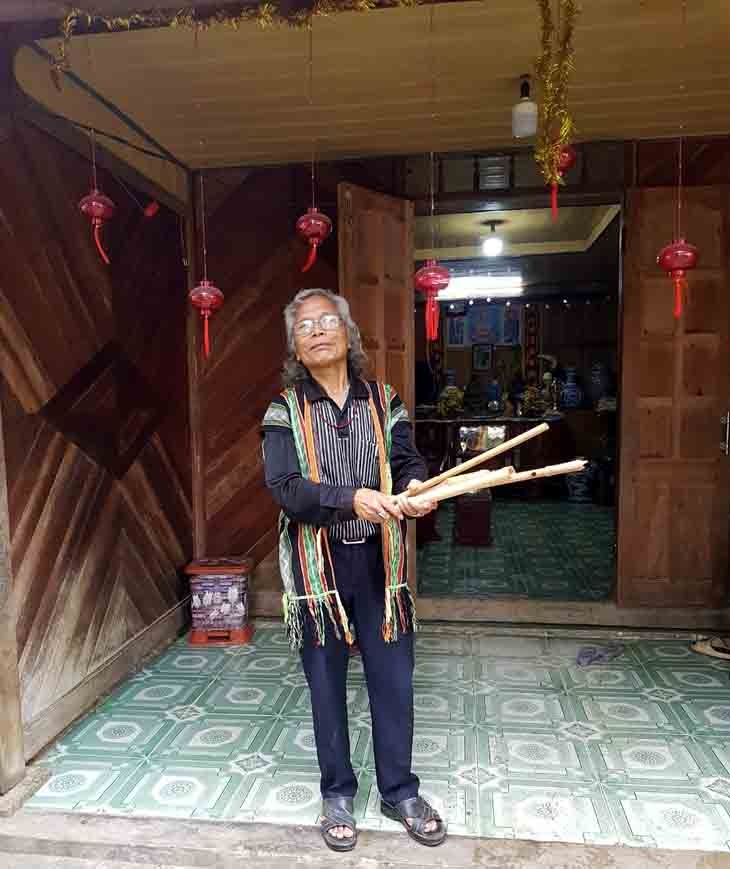The Co Tu people have a special tradition called “pa’đăh” or the thanksgiving ceremony. This ceremony is organized by the son-in-law to express gratitude to his wife’s parents and relatives. It is considered a second wedding ceremony and is usually held a few years after the couple’s initial marriage. While it is not obligatory, it is customary for the son-in-law to honor his parents-in-law for bringing up his wife, especially since she has less time to care for them after getting married.
The thanksgiving ceremony is a significant and solemn occasion. The son-in-law prepares offerings and gifts in accordance with his wealth. When the couple has a child, the husband arranges a ceremony to thank his parents-in-law for raising his wife. As a gesture of gratitude, he presents a buffalo to his wife’s family and organizes a festive celebration with drums and gongs playing throughout the night. Both families come together, along with the wife’s relatives, to celebrate for three consecutive days. They offer prayers to the deities, wishing for good luck, a bountiful harvest, and good health.
The first day of the ceremony is reserved for the immediate family and close relatives, while the following two days involve the participation of extended family members and neighbors. If circumstances permit, they may even organize traditional dances like Tung Tung and Da Da. In cases where a buffalo or cow is involved, the parents-in-law invite the entire village to attend the ceremony after the first day.
The son-in-law expresses his gratitude by presenting valuable gifts to his parents-in-law, such as buffalo, cows, pigs, chickens, ducks, gongs, jars, and agate beads. He appreciates his wife and thanks her parents for raising and taking care of her. This thanksgiving ceremony plays a crucial role in fostering a harmonious and happy family.
During the celebration, the husband’s family serves the best pieces of meat to the wife’s relatives, while all members of the wife’s family are offered meat and glasses of liquor.

Abing Lam, a Co Tu man from Tay Giang district, explains that both close and distant relatives, as well as all villagers, are invited to the ceremony. Approximately 300 people come to celebrate, and many villagers assist in the preparations. The thank-you gifts may include gongs, animals, alcohol, gold, and cash.
The Co Tu people have a unique tradition of giving coffins and tombs as gifts to the living, influenced by their belief in the saying “live in a house, die in the house.” In fact, coffins and tombs are highly valued thanksgiving gifts that a son-in-law can offer to his wife’s parents.
The thanksgiving ceremony for parents-in-law among the Co Tu has been an enduring custom that brings joy and pride to the parents while also strengthening the bond between the two families.
Preserving History: The La Phu Community House and Pig Carrying Festival
La Phu village in Hanoi’s outlying district of Hoai Duc is one of the few ancient rural villages that well preserve its communal house and traditional festivals.









